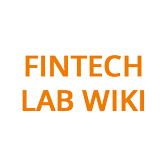Difference between revisions of "Decentralized Autonomous Organization/IT INfrastructure"
| Line 1: | Line 1: | ||
| − | A | + | A Decentralized Autonomous Organization (DAO) is a computer code that runs on a distributed P-2-P network. It is controlled by communities of online agents that collaborate and operate without the need for a central governing body. DAOs are created to operate without human involvement. This is done by transcribing organizational processes and governance protocols into algorithms. The code runs on a digital distributed ledger known as blockchain. |
In centralized organizations, the power and authority to make decisions is held by executive members or top-level management. This creates a hierarchy decision-making structure where the top-level employees control and direct the organization. On the opposite end of the spectrum are decentralized organizations where decision-making is delegated and is flexible. This means that executives assign part of their responsibilities to management and communicate often to oversee processes. | In centralized organizations, the power and authority to make decisions is held by executive members or top-level management. This creates a hierarchy decision-making structure where the top-level employees control and direct the organization. On the opposite end of the spectrum are decentralized organizations where decision-making is delegated and is flexible. This means that executives assign part of their responsibilities to management and communicate often to oversee processes. | ||
A DAO is a type of decentralized organizations; the key innovation is that DAOs are autonomous and can exist only relying on a digital infrastructure. DAOs rely on distributed ledger technology to record and enforce decisions and organizational processes. This could include aspects like issuing shares, appointing a CEO, voting on proposals, and paying salaries. | A DAO is a type of decentralized organizations; the key innovation is that DAOs are autonomous and can exist only relying on a digital infrastructure. DAOs rely on distributed ledger technology to record and enforce decisions and organizational processes. This could include aspects like issuing shares, appointing a CEO, voting on proposals, and paying salaries. | ||
Latest revision as of 11:17, 21 August 2023
A Decentralized Autonomous Organization (DAO) is a computer code that runs on a distributed P-2-P network. It is controlled by communities of online agents that collaborate and operate without the need for a central governing body. DAOs are created to operate without human involvement. This is done by transcribing organizational processes and governance protocols into algorithms. The code runs on a digital distributed ledger known as blockchain.
In centralized organizations, the power and authority to make decisions is held by executive members or top-level management. This creates a hierarchy decision-making structure where the top-level employees control and direct the organization. On the opposite end of the spectrum are decentralized organizations where decision-making is delegated and is flexible. This means that executives assign part of their responsibilities to management and communicate often to oversee processes.
A DAO is a type of decentralized organizations; the key innovation is that DAOs are autonomous and can exist only relying on a digital infrastructure. DAOs rely on distributed ledger technology to record and enforce decisions and organizational processes. This could include aspects like issuing shares, appointing a CEO, voting on proposals, and paying salaries.





